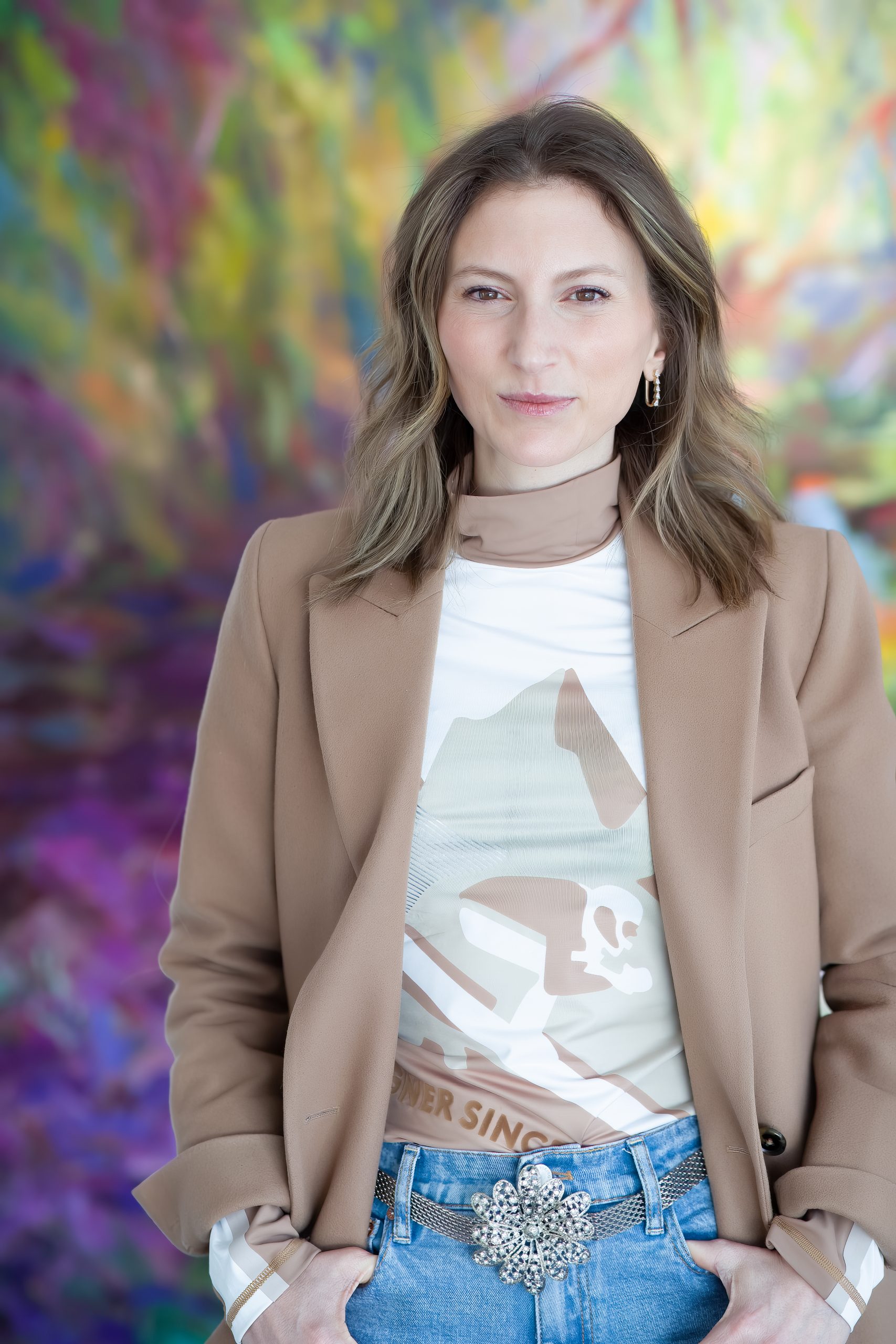
Should a single Damien Hirst sculpture cost more than an entire Old Masters sale? Why does Adrian Ghenie’s auction record stand higher than Frida Kahlo’s? The strange, fickle, largely subjective nature of art valuation is one of the industry’s most enduring enigmas—and sources of complaint. To analyze what’s behind some of the confounding prices in the art market, in our series “This or That” we ask experts to compare two competing works of art.
Following turbulence in auction rooms last year, there is tremendous uncertainty about the state of the market for emerging art. How should a collector navigate the current environment?
Seeking advice, Artnet News caught up with advisor Sarah Calodney, who has offices in Dallas, New York, and Aspen, where she ran Lehmann Maupin’s collaborative space with Carpenters Workshop in 2021. While she was jetting between several openings this month, we asked her to choose a piece from two shows that she was particularly excited about, at two different price points, and explain how she would help a client choose between them.
Calodney selected works from two painting exhibitions: one of 15 lyrical landscapes in Marina Perez Simão’s show at Pace Los Angeles and a piece titled Mother from Patrick Eugène’s first solo exhibition of powerful and muted pieces at Mariane Ibrahim in Paris.
Here’s what she said.
Marina Perez Simão,
Untitled/Sem título. 2023.
©Marina Perez Simão, courtesy Pace Gallery.
This or that? Buy both! Here’s how: Go for the Marina, but be bullish. Heck, even make it a promised gift, if you must. Beg for a 20 percent discount, and then roll that discount into buying the Patrick Eugène painting! (P.S.: You won’t get the discount; they will likely laugh in your face, but still buy both! Break the budget just a little bit. You will be happy about it later.)
The Market Angle. So let’s talk market. As an advisor, I tell all my clients to diversify! If you have the means, do not build a collection around solely one price point. If you can afford a $3 million Pierre Bonnard, still collect Marina’s painting at $165,000, and also the Eugène at $35,000. It’s important to buy emerging artwork at any point in your collection building. Not only is it more rewarding emotionally, but it will also be more financially rewarding and a safer way to collect from a monetary perspective. So do not save the $130,000 and plan to buy four or five more works of the same value. Take your time. Wait for the next established artist you like. Look at as much as you can, talk with your advisor, and talk with your friends. Art should be purchased judiciously.
The Subjective Angle. Marina is an abstract painter. Her works are evocative of landscapes from her native Brazil. I read an interview where she describes her paintings as being living and breathing and having human qualities. They truly do come to life when you stand in front of them. It’s an emotional experience.
Patrick Eugène, Mother, 2023. Courtesy of the artist and Mariane Ibrahim.
In my opinion, both artists have studied Bonnard’s landscapes. If you are visiting the Patrick show in Paris, go head to the Musée d’Orsay immediately after. But what makes the paintings pass the test is that they bring something new to the table. They take what Bonnard did and accelerate it. Marina throws hers into a washing machine and comes out with clean swirls that draw you into the canvas. Patrick pares them down to give center stage to his characters, who float like mythical spirits on the canvas.
What Sarah Would Advise Her Clients. I have three criteria when looking at art for purchase. First, is it emotive? This criteria is about that instinctive gut reaction that can’t be quantified, but must be there for a purchase to happen. And it’s not always joyful; art can make you sad, confused, angry, anxious—all are valid. Secondly, do you like the artist’s story? Some people say this one isn’t important, but I think the stories are what creates community in collecting. Sharing stories of the artist and your story of why it resonates with you is paramount to enjoying collecting. Lastly, is the artist able to respect the old but say something totally new?